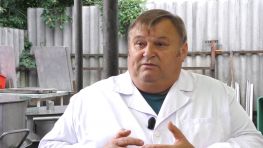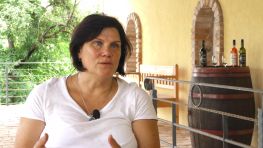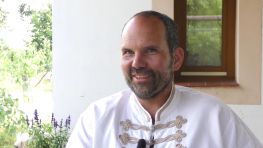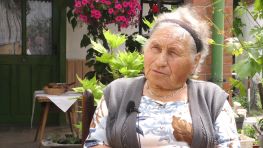 Sándor Kökény
Sándor Kökény Mihály Sallai
SlowFood-CE project - Kecskemét field research
After the 1956 revolution permits for self-employed tradesmen were issued - this made it possible to start small enterprises. Then his father started his business of making soda-water; i.e. aerated, carbonic acid water. At that time twelve such businesses operated. Customers took the empty siphon bottle to the workshop to have it filled with aerated water. Some tradesmen delivered the siphons in wooden crates to the customers' home with bicycle or horsed carriages. At the age of 11 he already worked. During the summer one week in a pioneers' camp was the most what they had as a vacation. They transported the huge glass siphons - which weighed 120 kg - on tricycles. Later they widened the choice on offer: bambi, a non-alcoholic refreshment was introduced. By the 1960s-70s their workshop was the only one in the soda-water business; thus they had to supply the firms with protective beverages and meet the demands of the population.
Indice del video
Non è disponibile un indice per questo video
Dati intervista
Nazione: HU
Città: Kecskemét
Scheda di: Luca Percivalle
Video di: Zoltán Szűcs
Creato il: 25-06-2018
Questo video fa parte del seguente archivio
Slow Food Central Europe
Slow Food Central Europe
Slow Food-CE è un progetto europeo di cooperazione transnazionale volto a migliorare le capacità di attori locali, pubblici e privati, nel salvaguardare e valorizzare il patrimonio culturale gastronomico integrando sostenibilità economica, ambientale e sociale. Obiettivo del progetto è la creazione di un modello trasferibile che possa dare al cibo tradizionale il giusto valore, attraverso la conoscenza dei produttori, delle varietà vegetali, delle razze animali, delle tecniche di trasformazione tradizionali, del folklore e del panorama culturale. Promuovendo il patrimonio alimentare comune dell’Europa centrale, il progetto costruisce una nuova alleanza tra cinque città: Venezia, Dubrovnik, Brno, Kecskemét e Cracovia.





